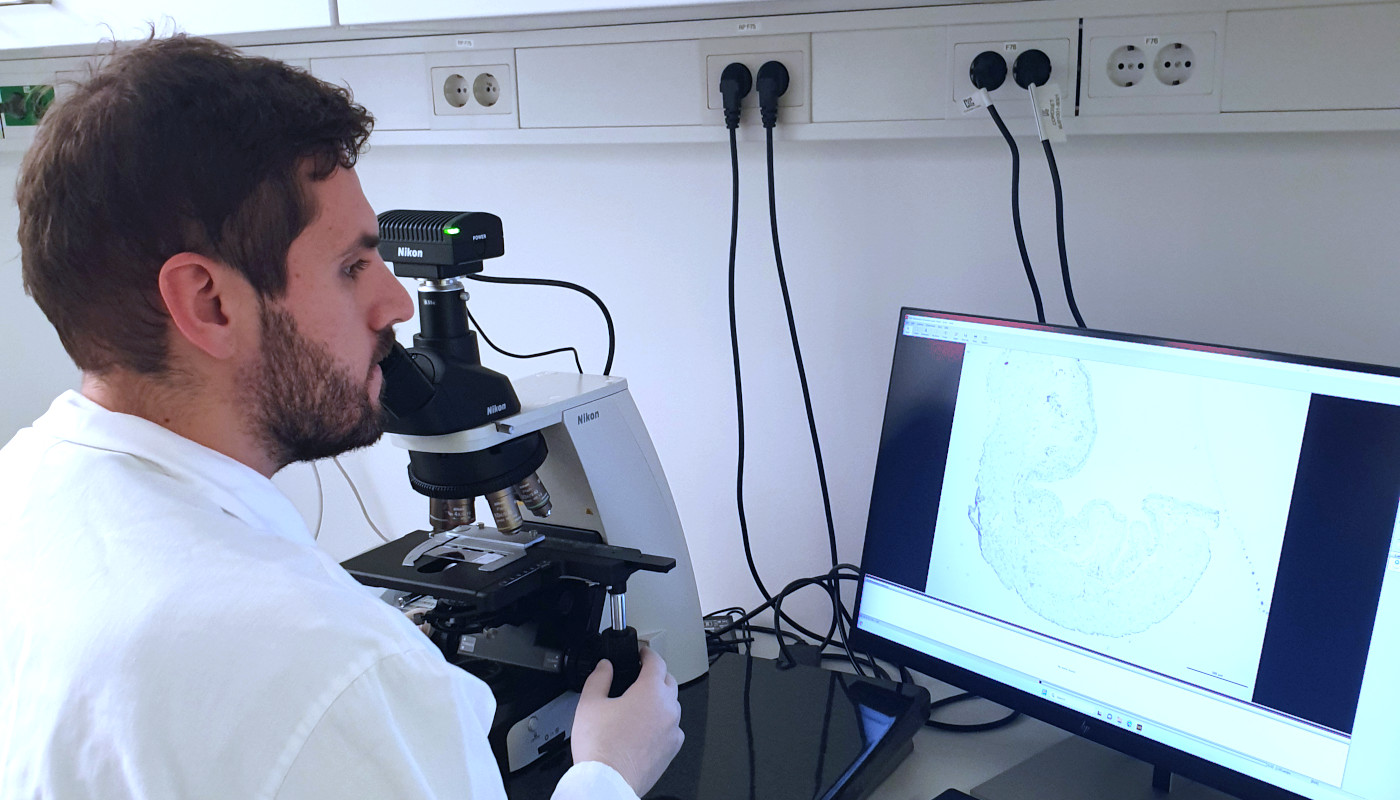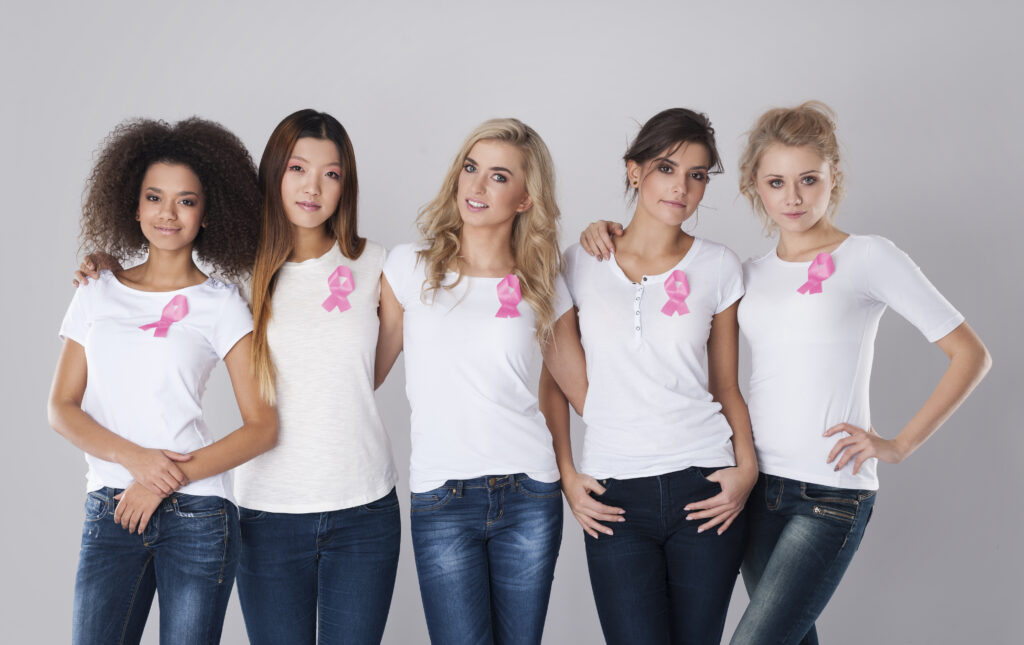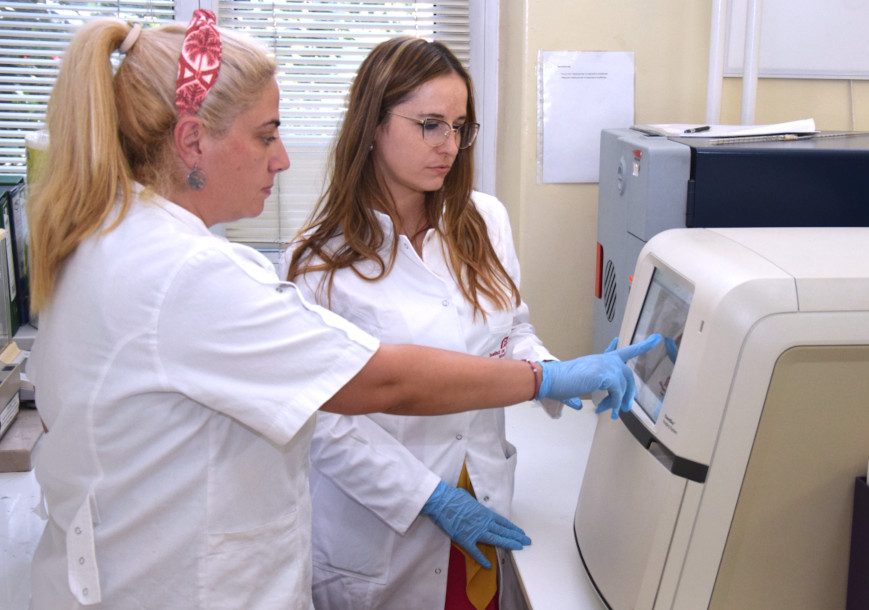Determining the Potential of Placental Tissue Derivatives for Use in Post-Mastectomy Breast Reconstruction: Development of a 3D-Printed Bioscaffold
Breast cancer is one of the leading types of cancer in the world, and Serbia ranks first in Europe in terms of mortality. Breast cancer therapies are constantly advancing, but they also include surgical interventions – mastectomy, i.e. removal of breast tissue. Although current methods of reconstruction after mastectomy are available and safe, in some patients they do not provide satisfaction with the quality of life and the cosmetic effect, they can lead to complications and cannot protect against the recurrence of the disease or metastases. The field of tissue engineering is growing intensively and primarily focuses on the creation of various scaffolds that act as templates for tissue regeneration. In a large number of preclinical studies, it has been shown that the placenta tissue has, among other things, regenerative and antitumor properties. This is of great importance considering that it is tissue that is discarded after childbirth and its use is not morally and ethically compromised. Amniotic membrane (AM) of the placenta tissue has been used for skin and cornea regeneration for almost a century, and numerous studies have confirmed its anti-tumor, anti-fibrotic, anti-inflammatory and immunomodulatory properties.


AmnioPrintCare aims to develop a biomaterial using a homogenate of human AM that will preserve and demonstrate its regenerative and antitumor effects over a longer period of administration. By establishing advanced 3D bioprinting techniques for the production of bioscaffolds, AmnioPrintCare will enable more affordable and personalized regenerative medicine practices in breast reconstruction. To achieve this, using different technological methods and advanced 3D software and a bioprinter, we will develop a 3D printed bioscaffold based on AM homogenate.
For the implementation of this project, we use placenta tissues obtained with the informed consent of the donors, from which we extract the amniotic membrane, homogenize it and then prepare the homogenate for the 3D printing process using various biotechnological methods. In doing so, we will optimize 3D printing to obtain bioscaffolds with appropriate physicochemical characteristics similar to breast tissue. In order to examine whether such bioscaffolds support breast tissue reconstruction primarily in terms of adipose tissue regeneration, we will monitor biocompatibility with adipose tissue stem cells and blood vessel endothelial cells in laboratory conditions. We will demonstrate the antitumor effect of these bioscaffolds in the presence of different breast cancer cell models (non-invasive and invasive). In parallel, we will evaluate the regenerative and antitumor effect of 3D printed placenta homogenate implants after transplantation in mice.
The collection of placental tissue is non-invasive since it is a tissue that is routinely removed and discarded together with the umbilical cord after childbirth, so there are no special risks for donors in this study. Our research does not require the application of any therapy, additional or alternative, does not require the use of alternative and invasive procedures, and there is no possibility of causing injury during sample collection. During this research, the personal data of the donors will not be recorded, neither the name nor any personal data that can enable the connection of the obtained results with the name, and the donors can withdraw their consent and the sample from the study at any time. Therefore, the protection of the confidential patient/doctor relationship and the protection of data privacy will be fully preserved.
The results of our project will provide the basis for the development of implants tailored to the patient, based on natural material with regenerative and antitumor properties. In this way, a better quality of life for patients. We believe that these studies will support the possibility of post-mastectomy breast reconstruction with better therapeutic efficiency and quality of life, which can motivate patients to go to regular medical examinations, to consider prophylactic mastectomy if necessary, and to develop confidence in advanced medical solutions.



